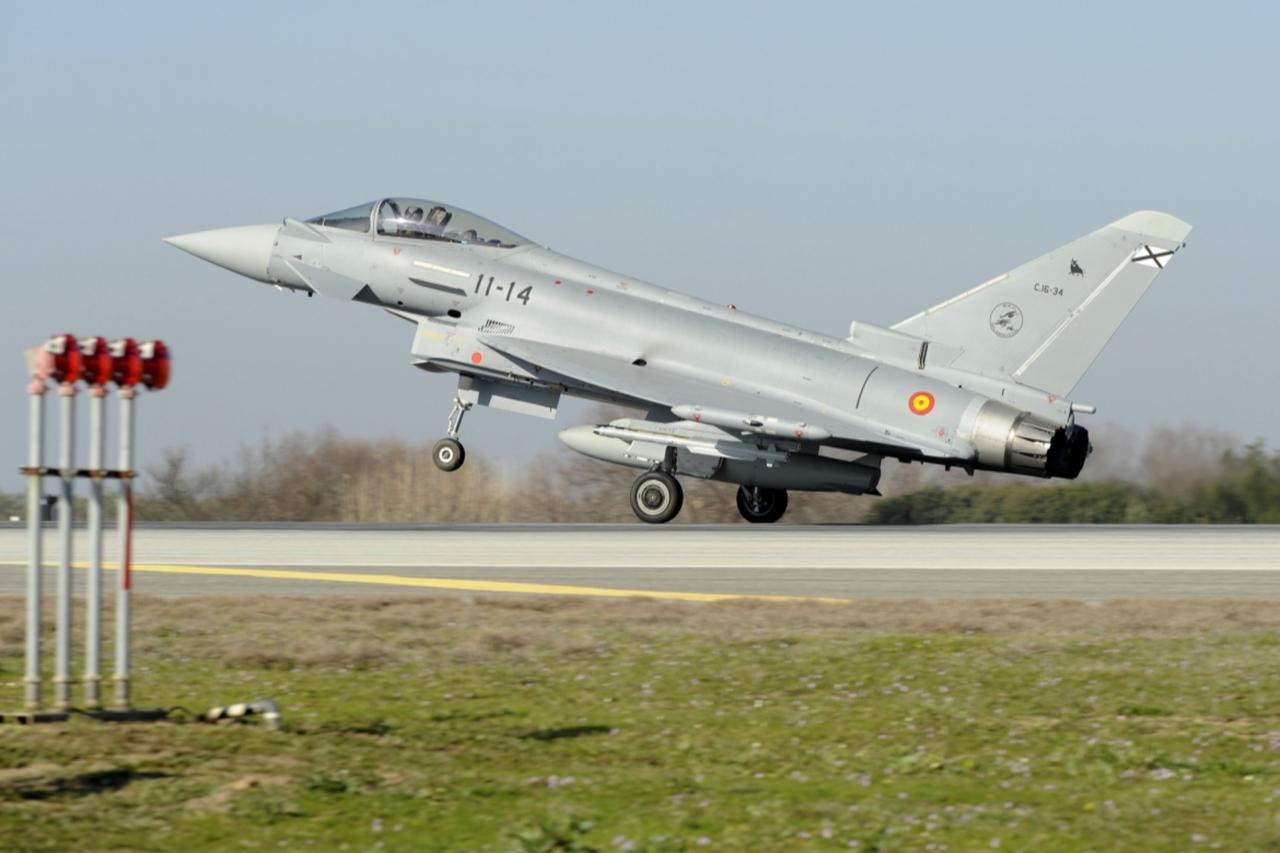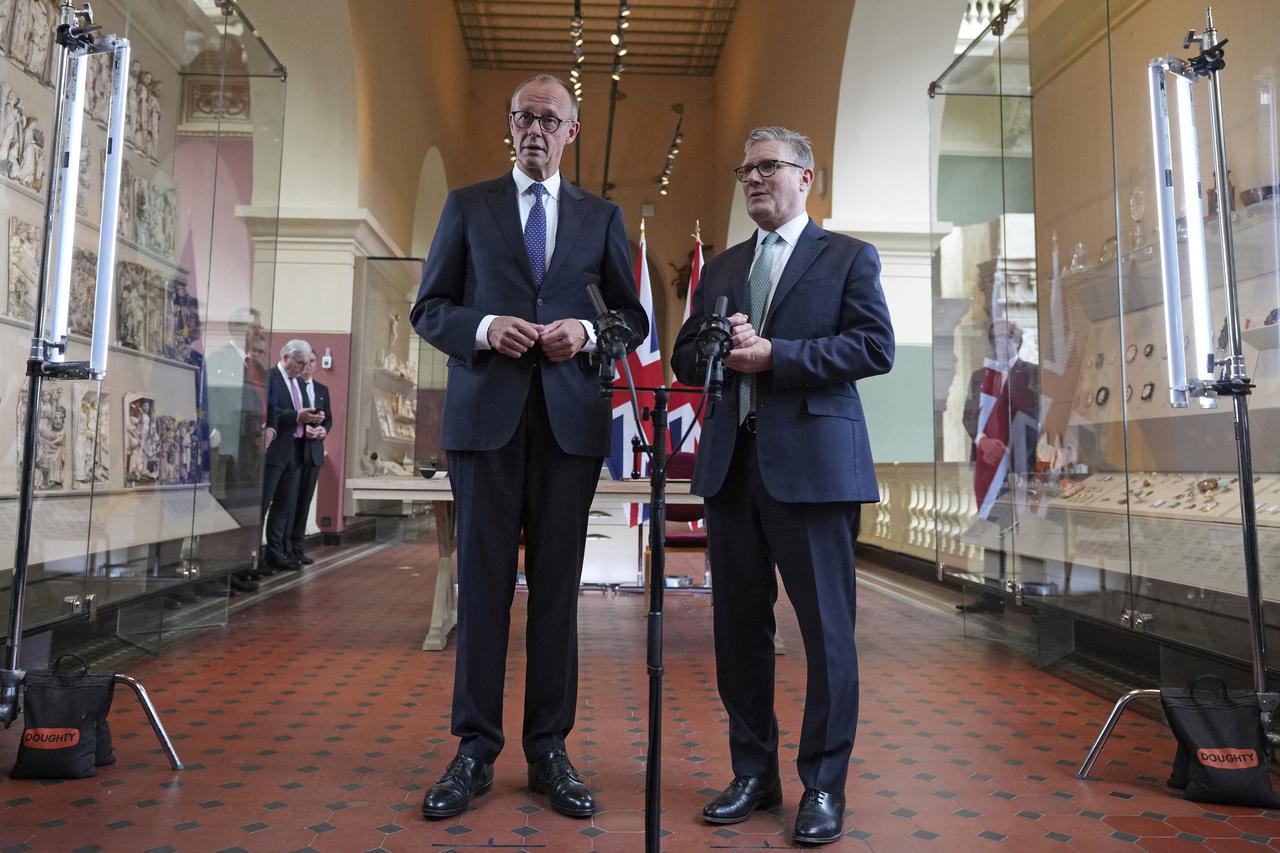
German Chancellor Friedrich Merz signaled Thursday that his government is making progress toward approving the sale of Eurofighter jets to NATO ally Türkiye, potentially ending months of delays that have stalled the major defense procurement.
Speaking at a joint news conference with British Prime Minister Keir Starmer following the signing of a U.K.-Germany friendship treaty, Merz indicated Berlin is moving toward a favorable decision on export licenses for the jointly manufactured aircraft.
"There hasn't been a final decision yet, but we're on the way to a good decision that could also make a corresponding export license possible," Merz told reporters when asked about potential Eurofighter exports to Türkiye.
The chancellor's comments represent the most positive German stance on the deal to date, following months of opposition from the previous coalition government.

Türkiye plans to acquire 40 Eurofighter jets as part of efforts to modernize its aging fighter fleet, maintaining NATO's second-largest military force. The aircraft are jointly manufactured by the U.K., Germany, Italy, and Spain, requiring consensus among all partners for export approval.
While the U.K. has strongly supported the sale and all manufacturing partners except Germany have backed the deal.
Türkiye's interest in Eurofighter aircraft intensified following its exclusion from the U.S.-led F-35 program and ongoing delays in procuring new F-16 jets from the United States.
The procurement timeline has evolved through several phases since 2022, when Türkiye initiated discussions with the UK and Spain while seeking to navigate German objections.
The comments came after the U.K. and Germany signed what both sides called the most significant bilateral treaty since 1945, establishing deeper cooperation on foreign policy and defense issues including a mutual assistance clause.
The 23-page agreement includes mutual assistance in the event of a military attack and outlines a framework for joint defense exports and industrial cooperation.
Prime Minister Starmer emphasized that the treaty will streamline defense industry efforts, including joint export campaigns: "On the question of exports, we discussed this today at some length, and we intend to have export campaigns more jointly together, coordinated together.
"That is a good thing for both of our countries, and it's a good thing for Europe," he said.
"All of this is further evidence of the closeness of the relationship as it now is, between Germany and the U.K.," he stated.
"We have not only discussed that, but also begun to take the steps to make sure that this is much more coordinated, much more joined up, and much more cooperative," Starmer added regarding export coordination.
The agreement underscores the importance of maintaining “a reliable agenda” for the transfer of defense-related products developed through intergovernmental programs or industry collaboration.